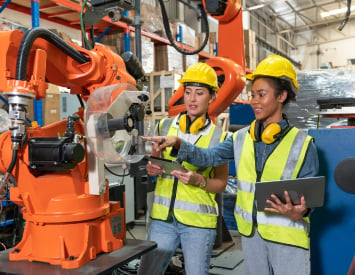The learning environment has shifted from the traditional synchronous classroom-based mode to synchronous and asynchronous online mode. However, critical aspects of engineering courses where theories meet applications, such as in the form of practical or laboratory work, are challenging to be conducted effectively online.
The rise of industry 4.0 has led to more education institutions adopting remote laboratories as a contemporary alternative to cater for the technical and social competences needed for engineering students and instructors.
This paper aims to explore and review the current global landscape of remote or virtual laboratories to better understand its impact on online engineering courses. Furthermore, the Engineering Institute of Technology’s (EIT’s) Remote Laboratory System(RLS) is used as a case study to analyse some critical and specific aspects of remote laboratories.
In this case study, using the current data available from EIT’s RLS, quantitative analysis has been conducted and a forecasting model of the RLS activities has been achieved.
The benefits derived from utilizing remote laboratories are demonstrated by analyzing engineering students’ academic performance.


